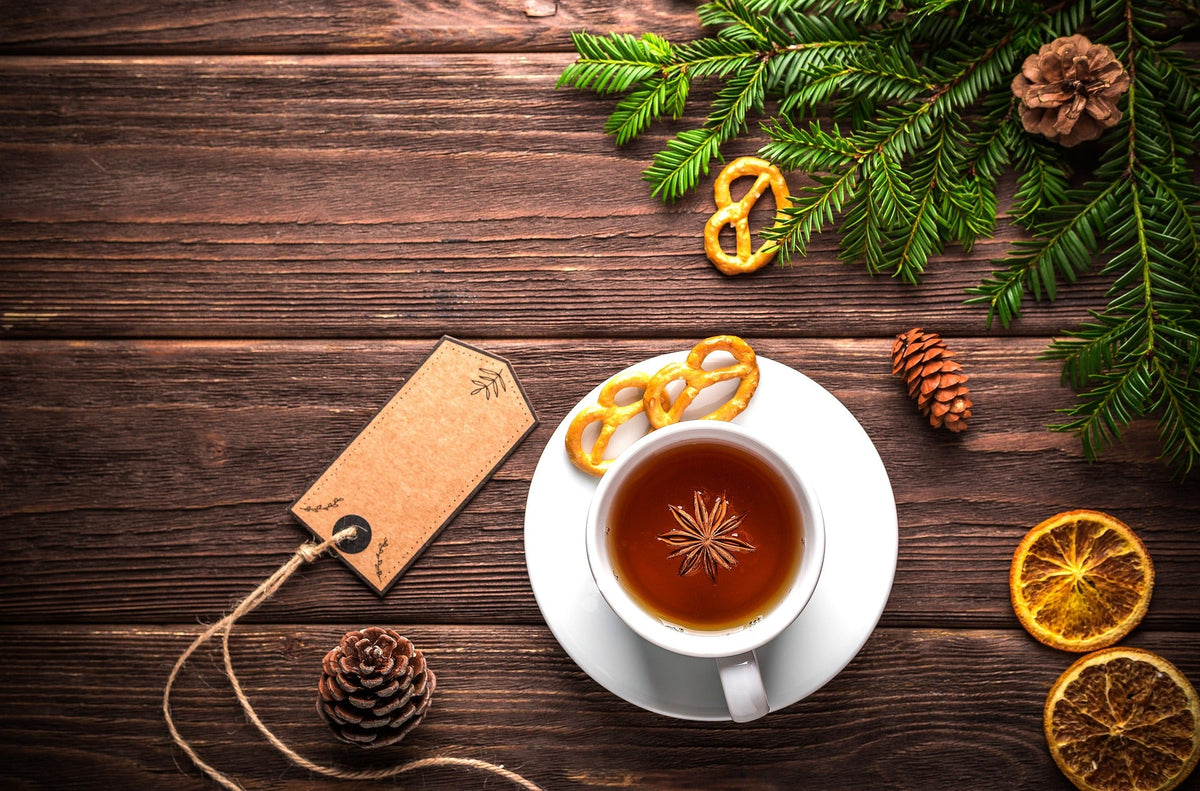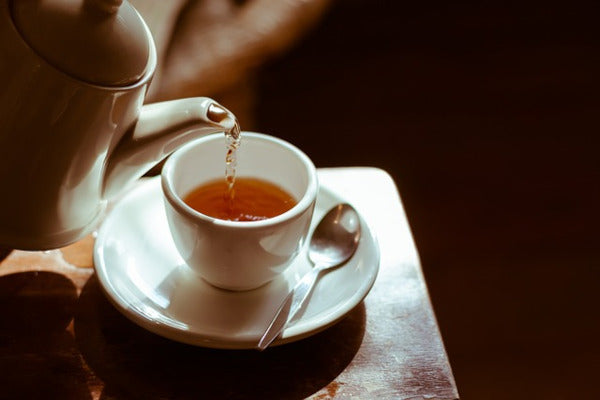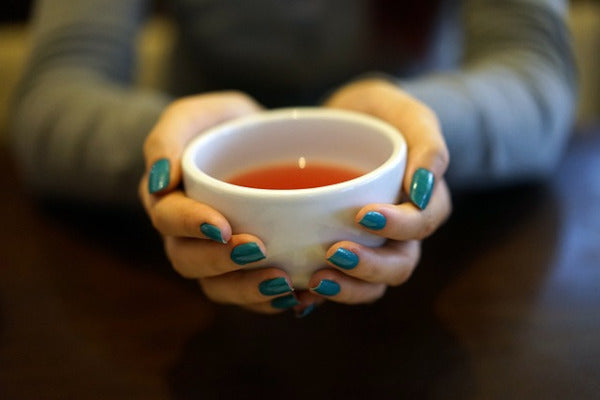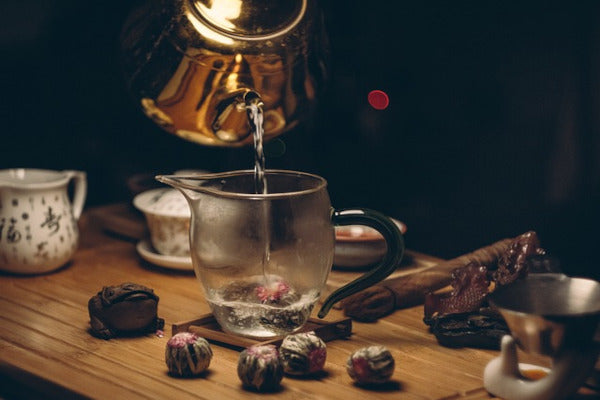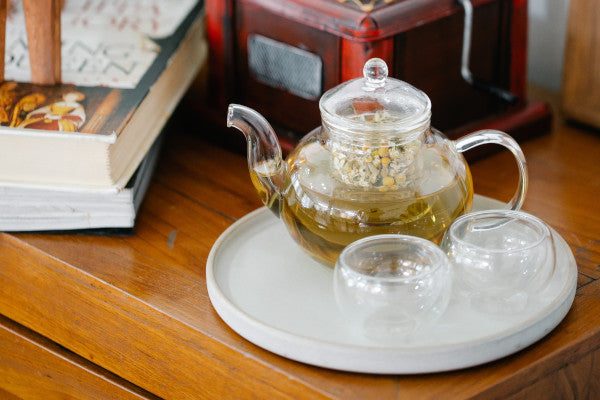Black Chai or Masala Chai, originally from India, is a tea beverage made with black tea and a blend of Indian spices and herbs. This beverage has gained popularity worldwide, becoming one of the favorite teas in coffee shops.
Traditionally prepared with a decoction of green cardamom pods, cinnamon sticks, ground cloves, ground ginger, and black pepper along with black tea leaves, today commercial versions are sold in all shapes and sizes, including instant powdered mixes and concentrates.
In our language, "cha" means tea, and it's the same in Hindi, the language of the people of India, where "chai" is simply the Hindi word for tea. Many cafes in the United States use the term chai latte or chai tea latte to indicate that it is served with steamed milk.
There is no fixed recipe or preparation method forchai masala , and many families have their own versions of the tea. It's safe to say that most chai recipes contain about a third of the caffeine of coffee. Due to the wide range of possible variations, chai masala can be considered a class of tea rather than a specific type. The tea has the following four basic components:
Black Tea: The base tea is usually a strong Assam black tea , and a specific type of Assam tea called "mamri" is used. Mamri tea is tea that has been produced in a special way that creates granules rather than "leaf" tea. However, a wide variety of teas are used to make Chai, with most Indian chai being made with strong black tea.
Spices: The spice mix called karha uses a base of ground ginger and green cardamom pods. Other spices are typically added to this base, or karha. For example, most masala chai found on the street, in restaurants, or in homes incorporates one or more of the following, along with ginger and cardamom: cinnamon, anise and/or fennel seeds, pepper, nutmeg, and cloves. In the Western world, the use of allspice to replace or complement cinnamon and cloves is also common.
Traditionally, cardamom provides a dominant note, complemented by other spices such as cloves, ginger, and black pepper. The traditional composition of spices often differs by climate and region in South and Southwest Asia.
Milk: Traditionally in India, buffalo milk is used to make chai. Masala Chai tea is generally It is made with ¼ to ½ milk. For those who prefer to drink chai without milk, the portion is replaced with water.
Sugar: White sugar, brown sugar, palm or coconut sugar, syrup, or honey are used. Although some prefer unsweetened chai, a little sugar enhances the flavor of the spices. The simplest traditional method of preparing masala chai is by simmering or actively boiling a mixture of milk and water with loose Assam black tea, sugars, and whole spices. In India, the people who mix chais are called "chai wallahs." Tea residue and solid spices are filtered out of the masala chai before serving.
Benefits of Black Chai Tea or Masala Chai
The benefits of black tea are many; it's packed with antioxidants. However, the antioxidants in tea may offer more far-reaching protection than we suspected. For example, black tea can boost LDL cholesterol (good cholesterol) stores, which helps prevent cardiovascular disease. In addition, some studies have shown that black tea has anti-viral and anti-cancer properties.
As for the second ingredient, ginger , this is an important root used in Eastern medicine. Ginger aids digestion, improves circulation, boosts the immune system, and reduces inflammation, which can be especially helpful for people suffering from arthritis. It's an antioxidant, and some research has also shown that ginger can help fight cancer cells.
Cardamom: Found in almost all Tibetan medicinal formulas, cardamom aids digestion and strengthens the immune system. It also helps detoxify the body, improves circulation, and can also combat respiratory allergies.
Cinnamon: Cinnamon has wonderful digestive properties and can also help balance blood sugar. Additionally, research has shown that cinnamon has anti-inflammatory, antibacterial, and antioxidant properties.
Fennel: A great source of antioxidants, fennel also provides vitamin C, potassium, and fiber. Fennel has also demonstrated some anticancer effects.
Clove: Clove aids digestion and also has analgesic (pain-relieving) properties and can help relieve ulcer pain. Clove also has antibacterial properties.
Black Pepper: New research shows that black pepper can affect our metabolism. One study demonstrated black pepper's direct influence on fat storage, suggesting it may be helpful in preventing fat accumulation. It also offers antibacterial and antioxidant support and aids digestion.
We are suppliers of high-quality chai black tea for restaurants and cafes. Our tea is carefully selected and crafted with a blend of carefully chosen spices to deliver an authentic and delicious flavor. If you're looking for a unique tea experience for your customers, please don't hesitate to contact us. We'd be happy to provide you with our chai black tea and help you take your business to the next level.


